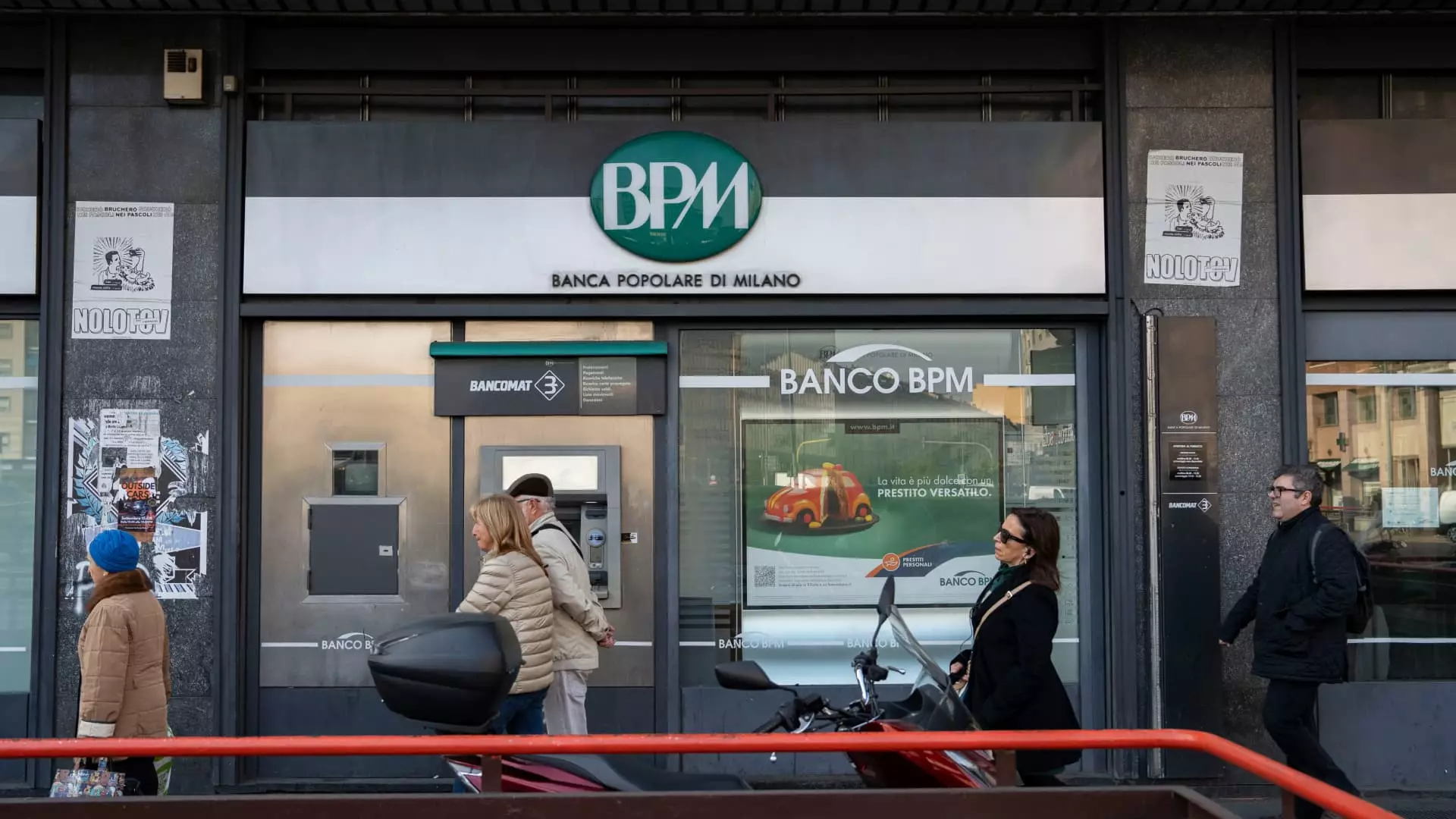In a dramatic twist in the European banking sector, Banco BPM, a prominent Italian financial institution, publicly reacted to an unsolicited takeover bid from its domestic competitor, UniCredit. The offer, valued at approximately €10 billion (equivalent to $10.52 billion), was characterized by Banco BPM as unexpected and misaligned with its inherent value and growth prospects. As UniCredit pushes forward with its aggressive acquisition strategies, Banco BPM’s board has emphasized the potential risks and ramifications of this rapid merger attempt, setting the stage for a multifaceted financial showdown.
The board of directors at Banco BPM has been vocal in its criticism of the terms set forth by UniCredit. They contend that the bid does not adequately represent the bank’s profitability or its potential for future growth, aspects that they believe are crucial in evaluating any acquisition offer. Their objection centers on the so-called “unusual” nature of the proposal, which could undermine the strategic positioning and operational independence of Banco BPM if a merger were to occur in haste. By prioritizing a swift merger timeline, critics argue, UniCredit may be risking a detrimental impact on Banco BPM’s existing operational strategies and long-term objectives.
The board also cautioned that such a merger could introduce uncertainties regarding UniCredit’s regional expansion efforts, particularly in Germany. With UniCredit aiming to penetrate a market that is already fraught with regulatory challenges, any dilution of Banco BPM’s geographic focus could lead to adverse consequences for stakeholders and diminish the bank’s competitive leverage in the Eurozone.
UniCredit’s offer follows its broader ambitions, which have included a controversial attempt to acquire a stake in Germany’s Commerzbank—a move that has not gone unnoticed by Germany’s government. Political resistance to UniCredit’s plans prompts further questions about the bank’s strategy and its long-term viability in executing multiple acquisitions simultaneously. The Italian government’s response, articulated by Economy Minister Giancarlo Giorgetti, highlights a crucial point: the risks involved in pursuing multiple fronts in corporate consolidation.
UniCredit CEO Andrea Orcel, while championing the takeover as a necessary step for strengthening European banking, also faces skepticism regarding whether such mergers will indeed fortify the sector or potentially exacerbate existing vulnerabilities. Despite UniCredit’s assertion of superiority, the proposal for Banco BPM raises questions about whether the underlying challenges of consolidation—such as regulatory hurdles and the complexities of integrating distinct corporate cultures—can be effectively addressed.
The initial market response to the proposed takeover has been cautious, as reflected in the relatively stable share prices of both banks, with Banco BPM experiencing a slight decline of 0.20%. This muted reaction suggests that investors may share some wariness regarding the implications of an acquisition, questioning the benefits against potential disruptions. Shareholders are likely weighing the offer against the backdrop of Banco BPM’s recent actions—including its acquisition of a 5% stake in Monte dei Paschi—underscoring the need for a strategic approach in the face of fluctuating market conditions.
Orcel’s characterization of Banco BPM as a “historical target” gestures toward previous flirtations between the two banks, including discussions that date back to 2022. While such historical context may add weight to UniCredit’s intentions, it does little to assuage the immediate concerns raised by Banco BPM’s board.
As the battle lines are drawn, the unfolding narrative surrounding Banco BPM and UniCredit is emblematic of larger trends within European banking: the drive towards consolidation in response to competitive pressures, regulatory challenges, and market demands. Whether this unsolicited offer can evolve into a mutually beneficial alliance or whether it will be met with staunch resistance remains to be seen.
The dynamics at play present a vital case study in the complexities of bank mergers, especially in an environment where institutions must balance aggressive growth strategies with operational sustainability. The ultimate resolution of this situation could redefine the competitive landscape in Italy and potentially alter the structure of the banking sector across Europe. As stakeholders closely monitor developments, the need for a cautiously strategic response will be critical in determining the future of both Banco BPM and UniCredit.

